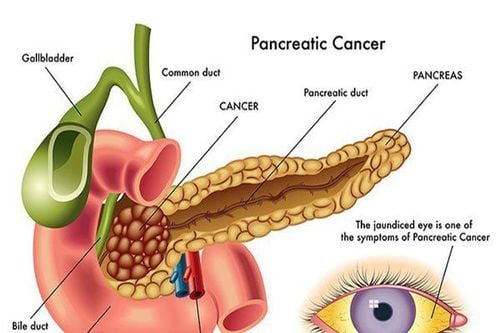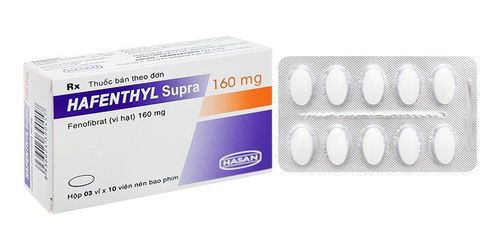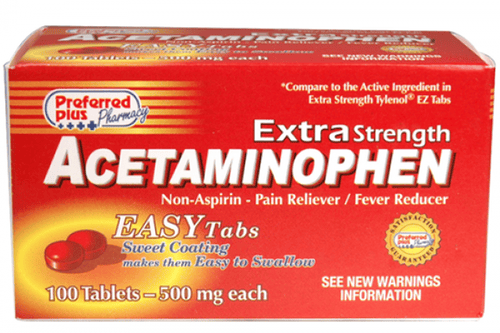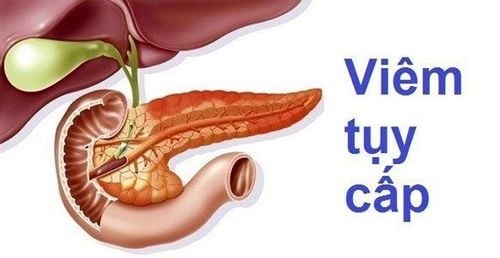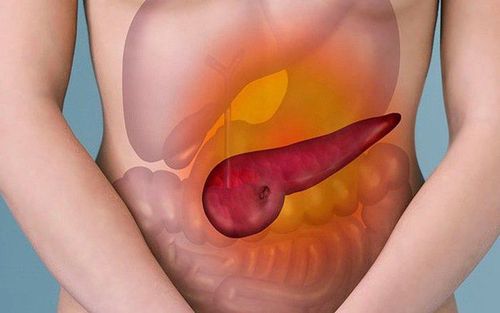This is an automatically translated article.
Posted by Doctor Department of Medical Examination & Internal Medicine - Vinmec Hai Phong International General Hospital
Acute pancreatitis is a sudden, short-term inflammation of the pancreas with mild to severe symptoms that can be life-threatening. Most people with acute pancreatitis make a full recovery with proper and timely treatment.
1. Symptoms of acute pancreatitis
Abdominal pain: Most patients with acute pancreatitis have an acute onset of persistent upper abdominal pain. In some patients, the pain may be in the right upper quadrant or in the left side. In about 50 percent of patients, the pain radiates to the back. The pain lasts for a few hours to a few days and can be partially relieved by sitting up or bending forward.
Nausea and vomiting: About 90 percent of patients have nausea and vomiting.
Dyspnea: Patients with severe acute pancreatitis may have dyspnea due to diaphragmatic inflammation secondary to pancreatitis, pleural effusion, or acute respiratory distress syndrome.
Abdominal distention and bowel sounds are reduced.
Jaundice : The patient may have jaundice due to obstructive gallstones or edema of the head of the pancreas.
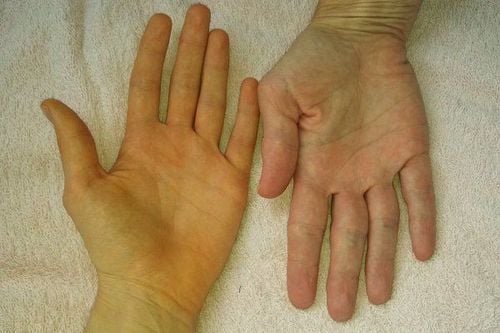
Patients with severe pancreatitis may have fever, tachypnea, hypoxia and hypotension, Cullen's sign (bruising around the navel), and Gray Turner's sign (bilateral bruising).
In addition, some signs may suggest a cause of pancreatitis. For example, hepatomegaly may be present in patients with alcoholic pancreatitis, and xanthomas in hyperlipidemic pancreatitis.
2. What causes acute pancreatitis?
Gallstones (including small stones) are the most common cause of acute pancreatitis accounting for 40 to 70 percent of cases.
Alcohol: About 25 to 35 percent of acute pancreatitis cases in the United States.
Hypertriglyceridemia - Serum triglyceride levels above 1000 mg/dL (11 mmol/L) can cause acute pancreatitis. Hypertriglyceridemia may account for 1 to 14 percent of cases of acute pancreatitis. Both primary (inherited) and secondary (acquired) disorders of lipoprotein metabolism are associated with hypertriglyceridemia pancreatitis. Causes of hypertriglyceridemia include obesity, diabetes, hypothyroidism, pregnancy, and medications.
Postendoscopic retrograde cholangiopancreatography (ERCP) - Acute pancreatitis occurs in approximately 3% of patients undergoing diagnostic ERCP, 5% undergoing therapeutic ERCP, and up to 25% in studies of the physiology of ERCP. Oddi.
Genetic risk - Patients with an inherited risk of pancreatitis may present as recurrent acute pancreatitis or childhood pancreatitis with no known etiology and eventually progress to chronic pancreatitis. The majority of "idiopathic" cases appear to have a genetic risk, especially in younger patients (age <35).
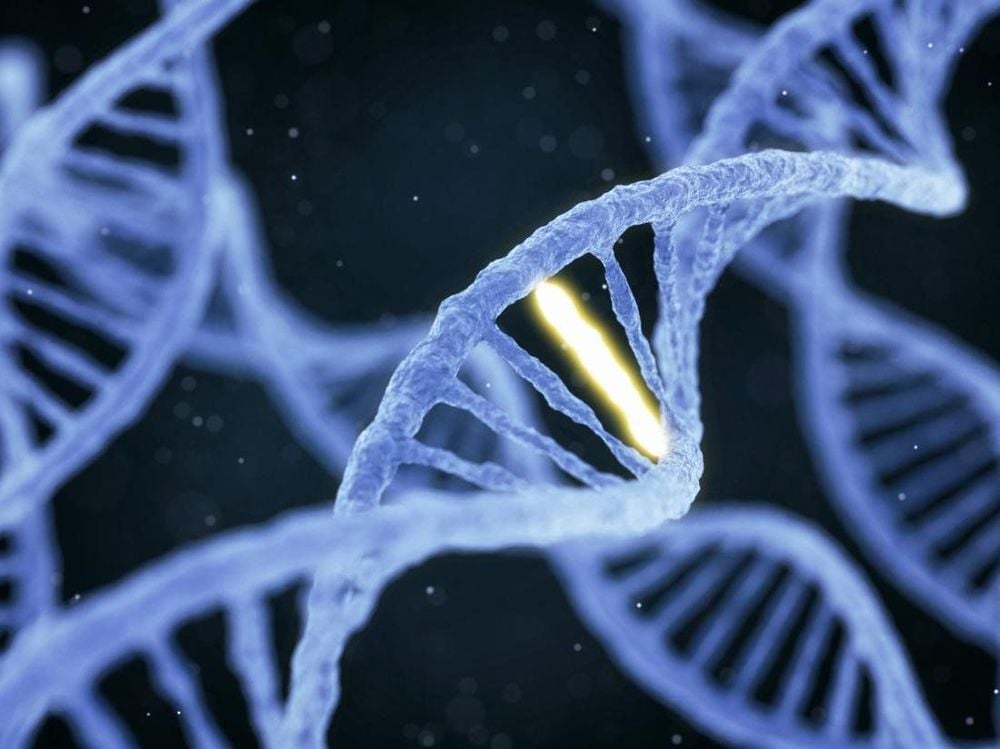
Other rare causes: biliary sludge, autoimmune pancreatitis, hypercalcemia, viruses (Mumps, coxsackievirus, hepatitis B, cytomegalovirus, varicella-zoster, herpes simplex, human immunodeficiency virus (HIV) , bacteria (Mycoplasma, Legionella, Leptospira, Salmonella), Fungi (Aspergillus), Parasites (Toxoplasma, Cryptosporidium, Ascaris), anatomical abnormalities of the pancreas or biliary tract (bile duct cysts, annular pancreas, pancreas) divisum...)
Idiopathic acute pancreatitis The cause of acute pancreatitis is identified in nearly 75 percent of patients
3. Complications of acute pancreatitis Patients with acute pancreatitis often present with acute pain supraumbilical region and elevated serum amylase and lipase.With supportive treatment, most patients recover without local, systemic, or organ failure complications and do not relapse. patients with acute pancreatitis with pancreatic necrosis and complications from pancreatitis These patients have a high mortality rate
In most patients with acute pancreatitis, She and the patient recovered in three to five days without complications or organ failure. However, 20 percent of patients with severe acute pancreatitis have local or systemic complications or organ failure.
The overall mortality in acute pancreatitis is about 5%. Local complications of acute pancreatitis include peripancreatic fluid, pancreatic pseudocyst, and local necrosis. Splenic vein thrombosis may be seen in about 50 percent of patients with acute necrotizing pancreatitis. Systemic complications of acute pancreatitis defined by exacerbation of comorbidities (eg, coronary artery disease or chronic lung disease)
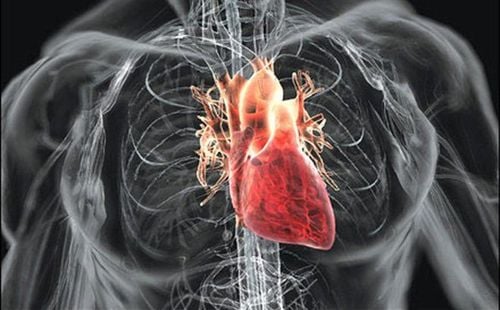
Organ failure may be transient on its own within 48 hours in patients with moderately severe pancreatitis or persist for >48 hours in patients with severe acute pancreatitis. Periodic health check-ups help detect diseases early, thereby planning treatment for optimal results. Currently, Vinmec International General Hospital has general health checkup packages suitable for each age, gender and individual needs of customers with a reasonable price policy, including:
Health checkup package diamond general health checkup package Vip special health checkup package Comprehensive health checkup package Standard general health checkup package Patient's examination results will be returned to your home. After receiving the results of the general health examination, if you detect diseases that require intensive examination and treatment, you can use services from other specialties right at the Hospital with quality treatment and services. outstanding customer service.
Please dial HOTLINE for more information or register for an appointment HERE. Download MyVinmec app to make appointments faster and to manage your bookings easily.




